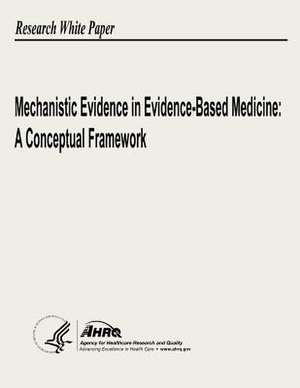Mechanistic Evidence in Evidence-Based Medicine
Autor U. S. Department of Heal Human Services, Agency for Healthcare Resea And Qualityen Limba Engleză Paperback
Preț: 108.82 lei
Preț vechi: 114.54 lei
-5% Nou
Puncte Express: 163
Preț estimativ în valută:
20.82€ • 22.27$ • 17.36£
20.82€ • 22.27$ • 17.36£
Carte indisponibilă temporar
Doresc să fiu notificat când acest titlu va fi disponibil:
Se trimite...
Preluare comenzi: 021 569.72.76
Specificații
ISBN-13: 9781492789499
ISBN-10: 1492789496
Pagini: 124
Dimensiuni: 216 x 280 x 7 mm
Greutate: 0.3 kg
Editura: CREATESPACE
ISBN-10: 1492789496
Pagini: 124
Dimensiuni: 216 x 280 x 7 mm
Greutate: 0.3 kg
Editura: CREATESPACE
